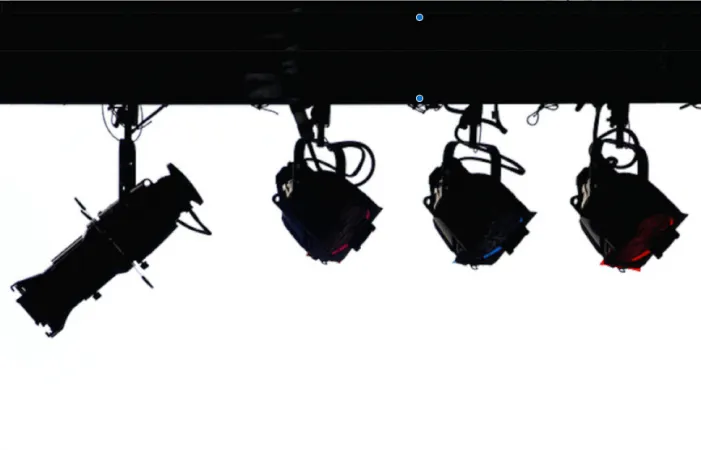
Alumni Spotlight: Guido Schenkel
In this Alumni Spotlight, we catch up with Guido Schenkel, a former ModSquad account manager who started with the company in 2010. Guido now works as head of player experience and localization at Wooga, a popular mobile-game developer. We asked Guido about how his linguistic skills brought him to ModSquad and how he balanced working on accounts with very different needs and styles. And we learned why “I didn’t hate it” is practically the highest compliment one can receive from Guido!
What was your background prior to joining ModSquad?
 I joined ModSquad when I was in grad school, so I had virtually no related professional background. I had, however, worked as a freelance translator for a number of years prior to joining, which was helpful for some aspects of the job, such as localizing community posts on the fly.
I joined ModSquad when I was in grad school, so I had virtually no related professional background. I had, however, worked as a freelance translator for a number of years prior to joining, which was helpful for some aspects of the job, such as localizing community posts on the fly.
What brought you to ModSquad?
ModSquad came to me, really. They tracked me down through an online network for professional translators and made me an offer I couldn’t refuse.
Why did you join ModSquad?
I love games. So an opportunity to work with some of the biggest names in gaming while supplementing my measly grad student income more or less on my own schedule was pretty much a no-brainer at the time.
As you reflect on your time spent at ModSquad, what are your thoughts?
The first project I ever worked on for ModSquad was also one of the most fun jobs I’ve ever had. It involved screening and evaluating community-generated video content for a social multiplayer game. I remember telling friends after I started that this was the first job I didn’t hate. (For the record, I also don’t hate my current job.) In many ways, this part-time job (which I didn’t hate) and the experiences and skills I took away from it were the gateway to a career I don’t hate. I left academia and still work in games to this day, both for good reason. Coming from me, that’s pretty high praise.
What did you learn from ModSquad?
Pretty much everything. The various projects I worked on for ModSquad, in various different roles, allowed me to build up skills and experience in community management, player experience management, project management, people management, and account management and enabled me to hone them alongside some of the leaders of the industry. I still benefit from lessons I learned—good and bad—working on ModSquad projects on a more or less daily basis.
Did the flexible scheduling help you out?
When I started, it was absolutely invaluable. Contrary to popular belief, grad students have very busy schedules, and being able to get in some work hours more or less where I could fit them was fantastic. While it wasn’t as essential to me anymore after the end of my studies, and while the hours in my current job are anything but rigid, having almost complete control over my own work schedule (from home) is one thing I definitely still miss sometimes.
How was it working with the other project managers?
I’ve learned a lot from other ModSquad managers, both from my peers and from my supervisors. Specifically, Matt Hostler pretty much taught me everything I needed to get going both in terms of technical knowledge, industry knowledge, and people management. And Rich Weil has definitely been one of my biggest professional mentors overall (but don’t tell him I said that).
After working with some of ModSquad’s big-name clients, what skills did you take away from your time here that you wound up using on later jobs?
Working closely with so many different clients (from some of the biggest names in games to small, agile startup ventures) was definitely one of the highlights of working for ModSquad. It allowed me to gain insights into the inner workings of a much larger number of different developers and publishers than I would have had the chance to do working at any one specific gaming company. The experience of dealing hands-on with a large variety of different approaches to community management and customer service has, I believe, been a unique asset in my professional development and has helped me a lot in advancing my career.
The only downside I can think of in this context is that having to quickly switch between the demands of sometimes very different clients could at times be challenging, when I had to juggle a number of different projects at the same time. But at the end of the day, what I was able to take away from it has been nothing but beneficial. Not least, I’ve also learned that I personally prefer being able to work closely with all stakeholders involved in the making and running of a game—something that can be difficult at very large companies, where different departments are sometimes very far removed from one another (both structurally and even geographically). It’s something I now really enjoy being able to do in my current position at Wooga.
Why do you think the ModSquad strategy is optimal for both Mods and clients?
In this increasingly fast-paced, globalized market, in which things like flexibility and scalability are becoming ever more important, it’s become next to impossible for individual companies to manage their own customer base in all aspects and at all times without help—especially if that customer base stretches across various languages and time zones. With its focus on recruiting and operating remotely, ModSquad is able to effectively bridge this divide for its clients and provide localized, flexible service as needed.
Gina Miller
Director of People Operations

